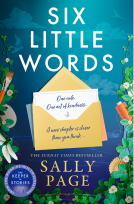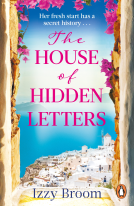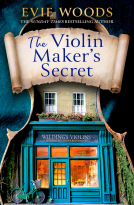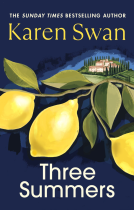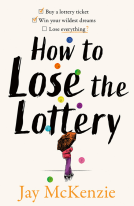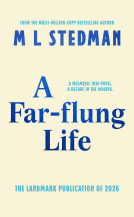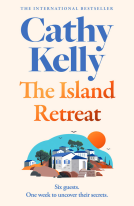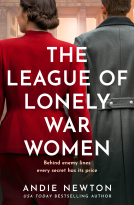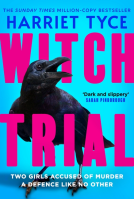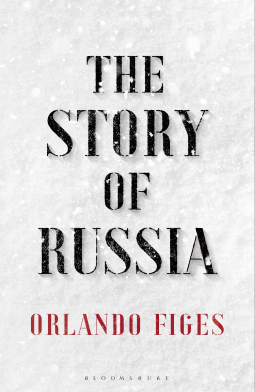
The Story of Russia
by Orlando Figes
This title was previously available on NetGalley and is now archived.
Send NetGalley books directly to your Kindle or Kindle app
1
To read on a Kindle or Kindle app, please add kindle@netgalley.com as an approved email address to receive files in your Amazon account. Click here for step-by-step instructions.
2
Also find your Kindle email address within your Amazon account, and enter it here.
Pub Date 1 Sep 2022 | Archive Date 1 Sep 2022
Talking about this book? Use #TheStoryofRussia #NetGalley. More hashtag tips!
Description
From the great storyteller of Russia, a spellbinding account of the myths and ideologies that have shaped the country’s past – and how they can inform its present.
No other country has reimagined its own past so frequently, or endured such vast differences in ruling ideologies, as Russia. This story begins in the first millennium, when the Viking-Slavic state of Kievan Rus was formed, and ends with Putin's war against Ukraine. Spanning the medieval myths of Russia's holy mission, the popular belief in a paternal tsar and the notion of the ‘Russian soul’, Orlando Figes explores the ideas that have guided the country’s actions throughout its long and troubled history.
The Story of Russia is about the stories the Russians have told of their past, and the ideas that have shaped those stories, as much as it is about the events and institutions, social groups and leaders that make up that history. Here, Figes brings into sharp relief the recurrent themes that remain so important in understanding the country today through the vibrant characters of its rich history: from Boris and Gleb, the first saints of the Russian Church, to the crowning of sixteen-year-old Ivan the Terrible in a candlelit cathedral; and from Catherine the Great, riding out in a green uniform to arrest her husband at his palace, to the bitter last days of the Romanovs.
Beautifully written and based on a lifetime of scholarship, The Story of Russia is quintessential Figes: sweeping, suspenseful, masterful.
Advance Praise
'A magnificent, magisterial thousand year history of Russia . . . by one of the masters of Russian scholarship'
SIMON SEBAG MONTEFIORE
‘If you really want to understand Putin’s Russia today . . . then you simply have to read Figes’s superb account in The Story of Russia'
ANTONY BEEVOR
Available Editions
| ISBN | 9781526631749 |
| PRICE | £25.00 (GBP) |
Average rating from 40 members
Featured Reviews
Want to understand more about Russia? If you’re looking to improve your understanding of Putin’s Russia, the role of myths in the many revisions of their history and how Ukraine sits in this story, you won’t go far wrong with Orlando Figes newest book out 1st September.
It’s his seventh book on Russia, so I think we can say he’s fairly expert on the subject and his writing is accessible to non-Russia experts like myself.😁
#russia #putin #ukraine #book #netgalley
This whistle-stop tour through hundreds of years of Russian history has probably taken on more resonance and perked the interest of more readers than Figes probably imagined due to recent events in Ukraine (2022). Indeed, the final paragraphs of this work seem especially prescient in their forewarning of future events.
This work, being a whistle stop tour, does not do every era full justice, but this is not a criticism. The end notes provide details of other books if you wish to pursue a particular rabbit hole of Russian history. Figes spends more time in the twentieth century in this book than the previous centuries, but he draws enough parallels and shows us the connective tissue between Putin and those rulers of old whose ideology and iconography Putin has adapted to make every section here absolutely vital.
As Figes notes near the end of this work, there are now hundreds of works which deal with Putin-era Russia, and doubtless there will be thousands more to come. This book is great introduction to that era and more besides, and is an expert primer to a country with whom we are all familiar, but about whose internal life we are unfamiliar. Great stuff.
Thank you to the publishers and Netgalley for the ARC.
 Carlton C, Reviewer
Carlton C, Reviewer
<i>History of course is more complex – even if it is a story too.</i>
Confident, concise history which is not afraid to make claims of historic trends and acknowledge multiple interpretations.
Russia now comprises four geographical zones:
• Treeless Tundra, above Arctic Circle, about one-fifth of Russia’s land mass
• Taiga forest zone - pine trees, spruce and larch, interspersed with marshes, lakes and rivers
• Central Agricultural zone, rich black soil
• Pontic Steppe - semi-arid grasslands and savannas
The history is told in eleven necessarily broad brush chapters that outline chronological developments and usually concentrate on a few individual stories to bring out the important changes.
1. Origins - Kievan Rus and Byzantium’s Eastern Orthodox Christianity. Creation of myth of Holy Russia with Mary as Mother, rather than Virgin (Roman Catholic interpretation).
2. Mongol Impact - 1223 and horsemen from the east. The capture of Kiev on 6 December 1240 effectively marking the end of Kievan Rus. With the subsequent rise of Moscow as a powerful principality, although subject to the Golden Horde, it was not until 1378 that the Mongols could first be successfully challenged. <i>Today the Kulikovo victory is linked in the nationalist consciousness to other episodes when Russia’s military sacrifice ‘saved’ the West, in 1812–15 (against Napoleon) or 1941–5, for example; each time its sacrifice had been unthanked, unrecognised by its Western allies in these wars. The country’s deep resentment of the West is rooted in this national myth. </i>Although gradually weakening, Moscow remained a vassal of the khans until 1502.
3. Ivan the Terrible (1530-84) and the conquest of Khazan and Astrakhan, with an unsuccessful attempt to conquer Livonia to access the Baltic Sea. The opening up of Siberia, which was conquered by Ivan’s son
4. Time of Troubles - civil war following Ivan the Terrible’s death without a successor (he had unintentionally(?) killed his son) and choosing of a Romanov as the next Tsar.
5. Russia faces West - Catherine the Great (1762-98) embraces the European Enlightenment, to a point, and creates the West facing St Petersburg.
6. The Shadow of Napoleon - the French Revolution turns Russia away from Europe, as does Napoleon’s invasion. I found this really interesting in highlighting Russian belief that Russia was responsible for defeating Napoleon.
7. An Empire in Crisis - the problem of making Russian farming and industry efficient, with serfdom eventually abolished (1861). Some Tsars embrace European ideas, whilst others are isolationist. The build up to revolution, or break down of the autocracy, is also outlined.
8. Revolutionary Russia - the 1917 revolution, civil war and creation of the Soviet state. There are more quotable insights: <i>Throughout the peasant world Communist regimes have been built on the ambition of peasant sons to join the bureaucratic class. And plausible explanations as to the Bolsheviks success, as a: unifying goal (the defence of ‘the revolution’) with clear symbols (the Red Flag and the Red Army’s emblem, the Red Star) capable of winning mass support.</i>
9. The War on Old Russia - Stalin’s “reign”, including the Five Year Plans, disastrous large scale agricultural collectivisation (kolkholzesj, and Stalin’s paranoia leading to the progroms and show trials in the 1930’s,
10. Motherland - the pragmatic reasons behind the 1939 Soviet:Nazi non-aggression pact (but also its betrayal of ideological Communism), the massive casualty rate in the Second World War, when the timing of the invasion had been unexpected. But also the patriotism and hatred of the Nazis that allowed the country to defeat the invasion (<i>The cult of sacrifice was a more important factor than terror. It was the Soviet system’s main advantage over Western liberal societies where the loss of human life was given greater weight in the reckonings of the command</i>.). Stalin died in 1953, to be followed by Krushchev, Brezhnev (1964), Andropov (1982), Chernenko (1984), and Gorbachev (1985), with the break up of the USSR.
11. Ends - discussion of the rise of Putin and how the potential for a more “Western liberal” government was lost, the possible missed chances, perhaps caused by the “West’s” understanding of Russia.
I found this narrative really useful to gain some understanding of modern Russia as throughout the book Figes highlights how Russian society was different from other European countries, and how some of these differences might explain the Russian public’s acquiescence to Putin’s current aggression to other countries. Recommended.
This is the book I've been wanting to read about Russia - and Figes is exactly the right person to write it. While this does sweep through the history of the country, the real focus, and what makes this so timely and fascinating, is that it doesn't just tell what happens, but how the cultural myth-making of 'Russia' runs alongside, and sometimes over, the historical material narrative. This is about how 'Russia' thinks of itself, how it creates its ideological and mythical narratives and what those flashpoints are and have been across millennia, all the way up to the present. Given our current urgency to understand what is happening and how, Figes traces myths of 'Holy Russia' and the deep desire for a patriarchal figure to dominate and control: from the Tsars to Stalin to Putin, to the place of religious patriotism, and the almost masochistic sense of sublimation. This isn't just the story of Russia but the stories that Russia has seemingly always told itself.

